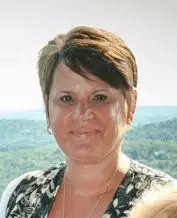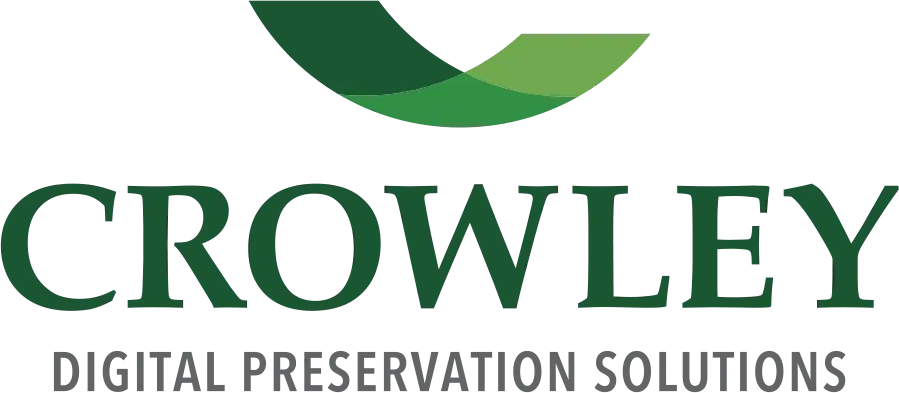Class Action Digitization
Special Collections Give Access to Tobacco, Drug, Chemical, Food and Fossil Fuel Industry Documents
A library is a library is a library, right? You might be interested to know that in the industry there are four primary library types:
- Public (libraries that belong to cities and towns)
- School (libraries that serve K-12 students)
- Academic (libraries that belong to higher education institutions)
- Special (libraries that belong to any private or public institution or corporation)
So…what do you call a library that belongs to a university, collects “special” litigation and other industry materials and has an influence on public health? The University of California San Francisco (UCSF) kept it simple when they created their unique but far-reaching entity in 2002: The UCSF Industry Documents Library (IDL).
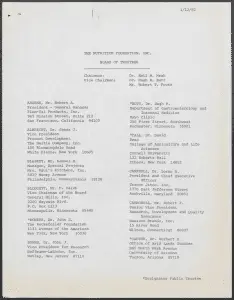
Laying the Groundwork
As with every good case, I started with examining the background. With the help of Kate Tasker, MLIS, CA and IDL archivist, I sought to learn more about this one-of-a-kind library with which Crowley’s Digitization Services division partners.
Below are excerpts from our conversation that give insight into the library, its importance to public health and its digitization efforts.
Q: How would you explain the IDL in lay terms?
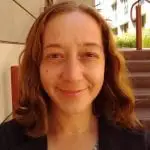
Industry Documents Library Archivist
The Industry Documents Library is not a physical space. We describe ourselves as a digital archive of documents created by industries which influence public health. It’s a pretty unique project resulting in a free, all-access online archive.
Our first documents came out of the Big Tobacco litigation of the 1990s. UCSF Professor of Medicine, Stanton Glantz, PhD, received whistleblower papers regarding industry awareness of the dangers of secondhand smoke. Dr. Glantz recognized their worth in the arena of public health and shared the documents with the UCSF library, which then granted public access to the papers. The seed for the Industry Documents Library was planted.
Q: Describe your role at IDL
I’m the Industry Documents Library archivist and project manager. My role focuses on collection development, negotiating agreements between organizations, facilitating material transfers and marketing the library and its collections. Instrumental to our day-to-day operations is library specialist, Rachel Taketa. She’s an amazing resource who serves as our processing/reference archivist. Her knowledge of the Library’s collections and coordination of all aspects of our digitization efforts – from working with vendors to indexing metadata – is crucial to the usefulness of these collections.
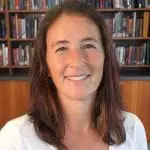
Filling in the Blanks
With the primary purpose of preserving open access to information and supporting research on the commercial determinants of public health, the Industry Documents Library was originally established in 2002 to house the millions of documents publicly disclosed in litigation against the tobacco industry. The Library has since expanded to include documents from the drug, chemical, food, and fossil fuel industries.
Q: How are the documents curated?
The IDL staff works closely with UCSF researchers and outside subject matter experts to identify collections that we deem to have long-term preservation value. One of our key partners is Dr. Cristin Kearns, assistant professor with the UCSF School of Dentistry and Philip R. Lee Institute for Health Policy Studies. Dr. Kearns visits libraries and archives across the country to identify collections for our Food Industry Documents Archive, which the Crowley Company has subsequently digitized.
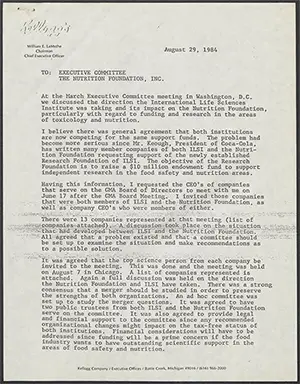
Q: How does this curation tie to the future of public health?
We work to support UCSF’s mission is to advance health worldwide. Researchers use these archives to look for increases in health risks, exposures to harmful substances, at how commercial activities have changed public health guidelines/policies and so much more.
The tobacco documents primarily came from 1990s litigation. There was a legal mandate for the tobacco companies to maintain websites providing public access to their documents until 2021. With that date quickly approaching, it’s not a stretch to imagine that access to these critical public health documents could disappear or be severely limited within the next 13 months. Their preservation in the IDL ensures that these documents remain available and that information is not lost.
Other industries – drug, chemical, food and fossil fuel – are collected from litigation when available but primarily in collaboration with holding libraries [libraries that act as repository for the hard materials].
A good example of a hot topic right now is found in food industry documents. We’re curating papers on trends that impact health (e.g.: sweetened beverages and sugar consumption) from academic nutritionists, policy makers and other industry experts to ensure that research which may not support consumer sales isn’t buried by commercial powers.
Q: Who are the primary end-users of the IDL archives?
Over the past two decades, the primary user group has been the UCSF community of scientific and academic researchers, public health researchers and academics and students. Increasingly, the archives are being used by investigative reporters, journalists, authors, documentarians, legal professionals and the public.
Case Closed…
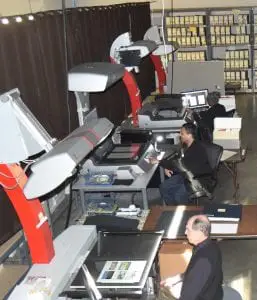
Sticking with the litigation theme, the case is closed when the documents are digitized and made available online. As of September 10, 2019, the Industry Documents Library had an archive of 91,936,939 pages in 14,957,805 documents.
The Crowley Company began working with UCSF in 2018.
“We first used Crowley’s digitization services on the William J. Darby papers at the preference of the holding library,” notes Tasker. “They had worked with Crowley in the past and the geographical proximity between the two allowed for an ease of transport. As the collection built, we were very happy with the images produced. Meghan [O’Brien, Crowley’s national sales manager for digitization services] had a familiarity with the project that put us at ease.”
Since that first project, the Industry Documents Library and Crowley have partnered on the digitization of a total of six collections, most for documentation within the food industry.
These include:
WILLIAM J. DARBY PAPERS
- Importance: Among other notable achievements, Dr. Darby (MD, PhD) helped to establish the first separate identifiable nutrition unit in an American medical school and served as President of the Nutrition Foundation. The bulk of the papers represents his body of work from 1944-2000.
- Holding library: Annette and Irwin Eskind Family Biomedical Library and Learning Center, Vanderbilt University
FREDERICK J. STARE PAPERS
- Importance: Regarded as one of the country’s most influential teachers of nutrition, Dr. Stare founded the Department of Nutrition at the now-named Harvard T.H. Chan School of Public Health. In 1978 he co-founded and chaired the American Council on Science and Health (ACSH), serving on the board until his passing in 2002. The collection spans the 1950s to the 1990s.
- Holding library: Francis A. Countway Library of Medicine, Harvard University
Nevin S. Scrimshaw Papers
- Importance: A collection of personal papers from the 1960s through the 1980s which underscore the contributions of epidemiologist and nutritionist Nevin S. Scrimshaw, who served on various United Nations and WHO committees among other organizations.
- Holding library: Annette and Irwin Eskind Family Biomedical Library and Learning Center, Vanderbilt University
- Not yet available online. For more information, click here
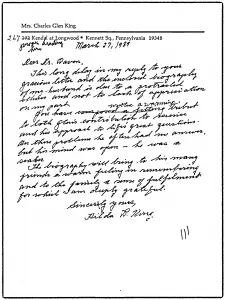
Franklin C. Bing Papers
- Importance: Nutritionist and chemist Franklin Bing (1910-1988) was a leading food scientist who often exchanged information with other eminent nutritionists in academia, government and industry
- Holding library: Annette and Irwin Eskind Family Biomedical Library and Learning Center, Vanderbilt University
- Available online early 2020. For more information, click here
D. Mark Hegsted Papers
- Importance: D. Mark Hegsted (1914-2009) was an American nutritionist who studied the connections between food consumption and heart disease. With a career spanning commercial laboratory work and teaching (Harvard Public School of Health), his work led to the development of dietary guidelines for better health through improved food choices.
- Holding library: Francis A. Countway Library of Medicine, Harvard University
- Available online early 2020. For more information, click here
Charles Glen King Papers
- Importance: This collection, the bulk of which spans the 1930s to the 1980s, represents the significant work of biochemist and prominent nutritional investigator, Charles Glen King (1896-1995). King was best known for his work with vitamin C and hexuronic acid. He was the Scientific Director of the Nutrition Foundation and helped to establish the recommended dietary allowances, the USDA’s Plant, Soil and Nutrition Laboratory, the Food and Nutrition Board and the International Union of Nutritional Sciences.
- Holding Library: U.S. National Library of Medicine, History of Medicine Division
The six collections included digitization of flat and bound materials such as research papers, handwritten letters, lab notebooks, photographs, diaries and other media. All were scanned using Zeutschel large-format overhead scanners. Images were scanned as PDFs for the IDL and as TIFF images for the holding library.
“PDFs load more quickly and are easier for researchers to use due to the large amounts of information they often download,” says Tasker, whose team typically does their own post-processing of meta data placement and OCR for text searching. “The holding libraries prefer the TIFF images for their higher resolution.” Currently, FADGI-rated images are not a requirement, but the IDL does adhere to best practices for quality.
…Almost
We ended our conversation talking about the future of digital libraries and the challenges they pose.
“It’s a great thing to create and give access to collections digitally,” enthuses Tasker, “but there are real challenges in making them sustainable. Organizations need the resources to commit to necessities such as storage, back-ups, periodic file integrity checks and more for long-term digital preservation. On top of keeping up with physical technology, there’s the more esoteric challenge of predicting how these files will be found in the future. Are we using names and terms now that will mean something – or the same thing – to researchers in the next decade?”
What she finds most exciting, though, is the future of artificial intelligence (AI) and computational analysis, “Imagine being able to quickly search collections for insight into content, cross-relation for common patterns, similar language and so much more. What might we be able to find that could be the next breakthrough for public health?”
If you’re curious about how researchers utilize the digitized information found within these archives, the Industry Documents Library keeps a bibliography of papers, news articles and other publications who cite the collections found within.
Do You Have a Collection that COULD Help TO Change the World?
Contact Crowley’s digitization services division to learn more about how we can partner to help preserve your important collections. Request a quote or call (240) 215-0224.
